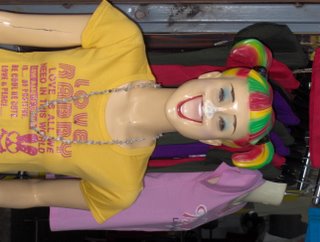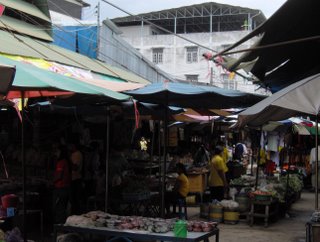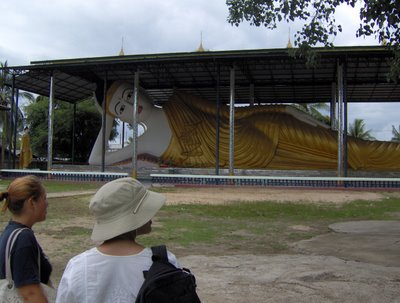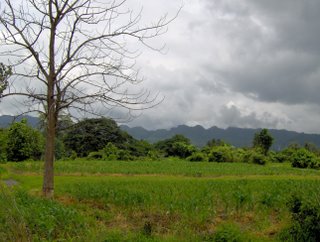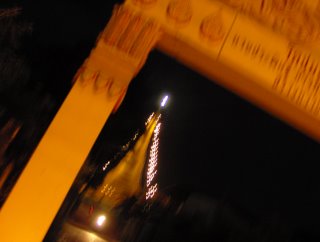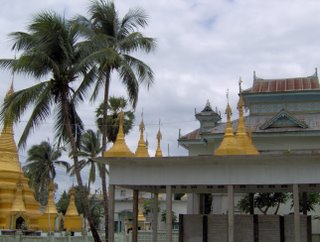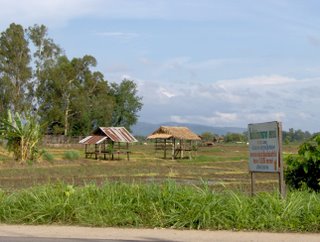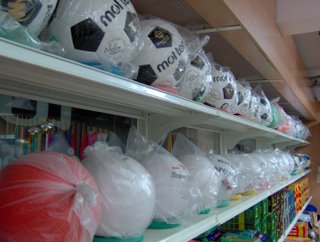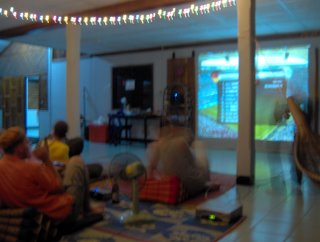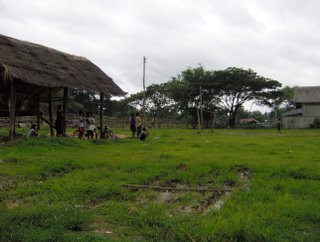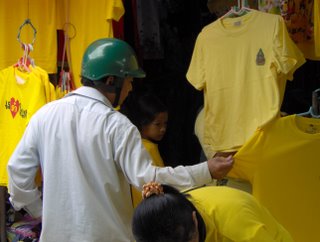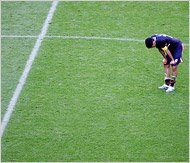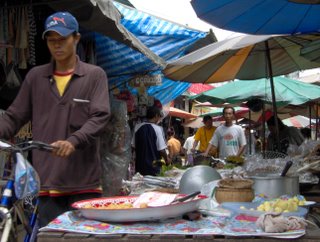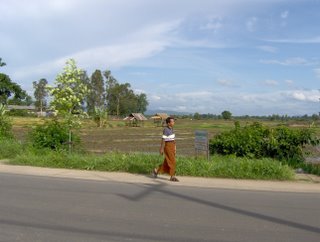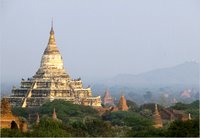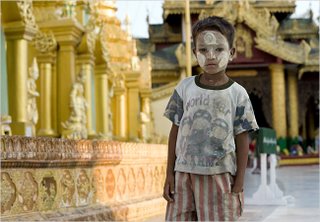
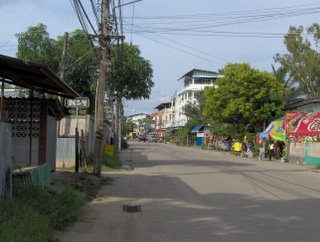
Wow - there's so much to catch up on. I'll try to be brief.
The flight was incredibly painless. They even had Butch Cassidy and the Sundance Kid as one of the inflight movie selections - along with The Constant Gardener and The Big Wednesday, a terrible, terrible surfing movie from the 1970s with some really amazing surfing footage.
I thought I was gonna be all savvy getting from the airport to my hotel in BKK, but I was out-savvied by the taxi driver, surely one of the savviest species around. My plan was to insist on the meter, but no luck. I insisted three times, only to be rebuffed three times with the claim that "big cabs" - ours was kind of SUVish - don't use meters. So I overpaid. Ah well. The hotel was beautiful, clean, etc, but a mere stopping point.
In the morning, after a somewhat fitful, jet-lagged attempt at sleep, I hit up the BKK Sky Train to the Mo Chit station, where I realized I basically didn't know where I was going. I knew I was looking for a bus terminal that would offer buses to Mae Sot, but I didn't know its name, how to get there, etc. After a long, difficult, pseudo-English conversation with some lifesavers at the Sky Train ticket counter, I found out the name of the bus terminal. None of the taxis down on the street could understand me, though, so I wrote it on a sheet of paper and finally someone said yes. A woman from the south of France - traveling through Southeast Asia for the next several months - joined me in the taxi. At the bus terminal - The Northern Bus Terminal - I tracked down my ticket booth, paid for my ticket, and proceeded to wait 8 hrs for my bus to leave at 21:00. It was hot. Plus I had my huge hiking bag and my smaller day-hike bag. I couldn't so much as buy a bottle of water without hauling about 75 pounds with me. I read until I got sleepy, at which point I crashed on the floor in the vicinity of someone reading Vanity Fair. Should I strike up a conversation with her? I decided to let my eyes close instead. Before I boarded my bus, I saw her a few more times. I had some amazing Thai fried rice in the terminal. Mmmm - Thai food.
The bus ride was overnight, air-conditioned, cramped, generally excellent, sleep-inducing, etc. I slept well. We stopped at some sort of market around 1:00 before continuing on to Mae Sot. As we rolled into this sizable town, the sun was rising, silhouetting the mountains ringing us on all sides. I got out of the bus, realizing I didn't know whether or not my guest house was yet open. It was about 5:30. I assumed it was not, though I tried calling, only to be defeated by a very uncooperative pay phone. Taxi drivers were hounding me to get in with them, as I was clearly the most obvious of prey. I wasn't sure what to do - Would I be able to just hang out on the street until my guest house would open? - and rather stressed (tired, too) when somewhat "out of nowhere" (i.e. from an arriving bus) the Vanity Fair reader from the bus terminal magically appeared. Did I need a ride? I supposed I did (playing it cool, you know how it is). A definite relief.
(Her name). From Montreal. The person who came to pick her up was fine with me jumping in, too, and they dropped me off at the guest house. I hung here for a while, reading, meeting people who were up and about, until eventually my room opened up. (I am so lucky to be here. I hope that comes across.) As I was busy unpacking my wares, (name) - the incredibly friendly person who seems to be part-manager-part-everyone's-best-friend - said a friend had come by. She of Montreal took me on a little tour of the town, we had lunch, etc. It turns out she and I are doing really similar work. We also know many of the same people. She was even at the US Campaign for Burma conference in April, where, she says, she remembers me introducing myself as in need of contacts for my upcoming summer in Mae Sot. It's incredibly reassuring that she's around. (I am a definite outsider here.)
This is a very superficial narrative. I plan on offering something more reflective soon. Quickly, some impressions - the market, particularly. She of Montreal and I dodged motorbikes and dipped into street stalls in this narrow, winding assemblage of vendors occupying a few blocks of the town. There were definitely some disturbing products in the raw meat/fish category, as well as some really mouth-watering displays of (cooked) food. Colorful chaos, with an easy breeze carrying a pleasant aroma. (The durien - spelling? - interrupted some of that pleasant aroma.)
Finally... I was talking with a Burmese painter who also works as a medic at Dr. Cynthia's famed Mei Tao Clinic down the road. I told him my father's name and he said Oooh! High society - a city boy, yes? I had to agree, more or less. (Hi dad!) He must be very wealthy, the painter said, basing his observation on the name only. Then I said his mother - my grandmother, of course - knows Dr. Cynthia. The manager here overheard, and he asked me her name. I told him. Ah!, he said. He knew of her husband, a.k.a. my grandfather. The manager knew all about him, but he expressed his knowledge hesitantly, as if he personally was not quite okay with the work my grandfather did in the 1950s. (My grandfather worked in education in Burma.) I can tell they've sort of pegged me as an upper-class Burman, which, I suppose, is not incorrect. I don't think that's bad that they see me that way, though - they all seem very friendly. The manager seems particularly proud of the fact that I'm interning with the (NGO that will remain nameless) - Burmese need people like you, he says.
One final coincidence from a day full of coincidences. Another lodger here grew up on 5th Avenue (he admits it sheepishly) before moving to Boulder, Colorado. I told him I spent a year in Utah. I have to ask, then, he said. Are you the Alta type or the Snowbird type? I smiled: I spent that year as a liftie at Alta, I answered. I am the Alta type. I could tell he appreciated that.
So far, I could ask for nothing better. I'll stop now, as this is quite a long post. I'm sitting outside on their veranda with the guy from 5th Ave. That easy breeze is keeping me very comfortable. So I'll be in touch quite a bit, I expect. If you've made it to the end of this message, please leave me a comment! Let me know how you are...
(One picture is the road leading into the "downtown" section of Mae Sot, and the other is a random stand-up advertisement thought I found visually interesting. Cheers!)
